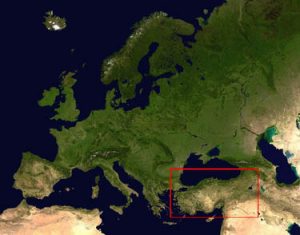Mariner is a noticer. While watching poor broadcasting content on television, he is prone to dissecting the tiniest elements of advertisements looking for irrelevant but irregular details. The most common error is lack of continuity between different takes of the same scene. His favorite commercial is two young men obviously from a low income neighborhood in Philadelphia, PA. They are espousing the wonderful Philly steak sandwich that is a trademark of Philadelphia. As they speak, there is only the tiniest relationship to English. Their elocution is so bad and is subject to colloquial expression that one cannot understand a word they are saying. Mariner misses that commercial.
He mentions this because though not intended as such, ‘noticing’ can be prudish. He used to be a prude about language. For example, during his teen years, pop music shifted from lyrics that were understood to lyrics that were no more than vowel slurs. Today, the art of incomprehensible lyrics is an art form of its own competing with the lyrics of opera. Elocution, along with cursive legibility, long have been absent from our education syllabus.
Further, mariner is an advocate of having a large lexicon, which is having lots of words at hand to provide specificity and nuance in writing and conversation. He is a fan of George Carlin who believed there weren’t enough words; George pointed this out by focusing on seven ‘unacceptable’ curse words whose meanings were specific emotional expressions that could not easily be replaced by acceptable words. Still, mariner has noticed that easy elocution displaces standard elocution. It has taken years of explanation from his philologist friend Robert to accept that language is subject to changing convenience both written and spoken. He and mariner often exchange colloquialisms like ‘skoeet’ – a full sentence.
One of the most entrenched changes that separates written language from spoken language is the word ‘wud’. For clarification, mariner will use it in a sentence: “Wudjoodo?” Still not sure? How about “Wudydo?”
Oh well, don’t blame prudishness, blame old age. Mariner grew up in a low income neighborhood. It wasn’t until he was sixteen when his father moved the family to a middle class town that mariner realized he said ‘nuffin’ instead of ‘nothing.’
A final thought about cursive. It is truly obsolete. Internet based communication has established a new age where letters, if one must use them, are intensely abbreviated (widely known example: LOL). Letters can be avoided if one chooses to create a glyph. We do the ancient Egyptians proud (We haven’t discussed grammar).
Only recently we have seen that chickens can learn to peck simple decisions. So can smartphone users.
Ancient Mariner

